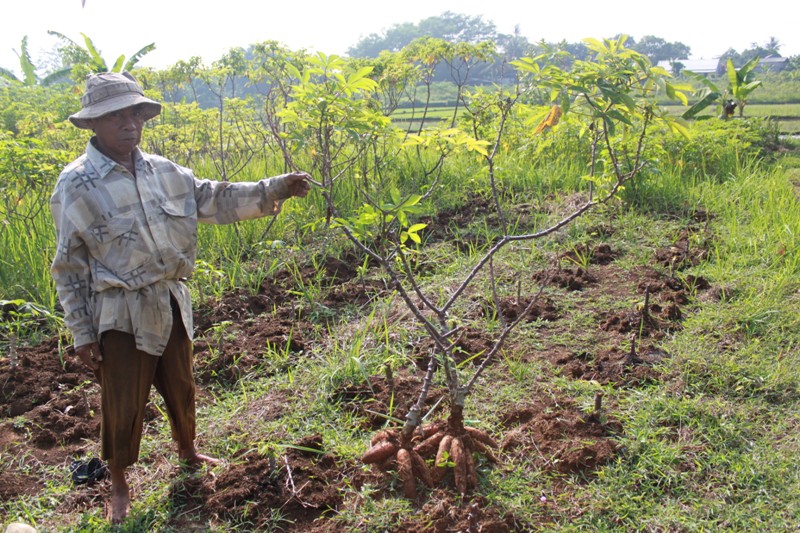E4D Fellow: Ima Mulyama Zainuddin
Abiotic stress resistance in cassava in Indonesia

Project duration: 2011 - 2015
Supervisor at ETH Zurich
Professor Wilhelm Gruissem (Group of Plant Biotechnology)
Other collaborators
Dr. Hervé Vanderschuren, ETH Zurich
Prof. Enny Sudarmonowati, LIPI
Partner institution
external page Research Center for Biotechnology - LIPI, Indonesia
Project description

Cassava is the staple food of nearly one billion people in 105 countries and the fourth most important crop in the developing world. In Indonesia, cassava is consumed as an alternative food to rice and used as animal feed because of its relative cheaper price. Although large areas are suitable to grow cassava and a higher price is offered in recent years, cassava production in Indonesia can only meet 5% of the demand (according to Indonesian Cassava Society (ICS) records).
Despite its demonstrated potential, several important constraints limit cassava production. One of the major limitations in cassava production is the post-harvest physiological deterioration (PPD), which renders the roots unpalatable and unmarketable within 24-72 hours depending on the genotypes and environmental conditions. PPD is characterised by a blue-black streaking of the vascular tissues. It forces farmers to sell fresh cassava roots or to process them rapidly after harvest as root deterioration is leading to price reduction and, eventually, to its use as feedstock. Losses due to PPD are increasing when the production site is distant from the market site.
The project characterised the natural PPD tolerance in selected cassava accessions available at the Indonesian Institute of Sciences (LIPI) in Cibinong, Indonesia. Field evaluation of cassava accessions allowed for generating an immediate output for Indonesian cassava production. The project was built on the use of cutting edge technologies to investigate molecular determinants for PPD tolerance.